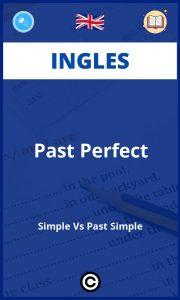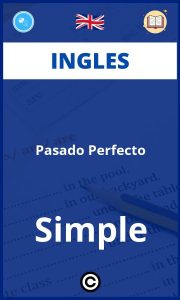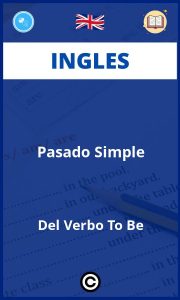
Abrir Ejercicios Ingles Used To Past Simple – PDF
Teoria : Ejemplos y Explicacion Used To Past Simple Ingles
En esta lección, aprenderás el uso y la forma correcta del verbo en el tiempo pasado simple «used to». Al final de la lección, habrás practicado el uso de este verbo en oraciones y en un diálogo. ¿Qué significa el verbo «used to»? El verbo «used to» se puede traducir como «solía» o «acostumbrado a». También se puede usar para hablar de hábitos en el pasado. Por ejemplo: I used to eat a lot of junk food, but now I eat healthy. (Solía comer muchos alimentos chatarra, pero ahora como sano.) used to eat a lot of junk food, but now I eat healthy. (Solía comer muchos alimentos chatarra, pero ahora como sano.) She used to be really shy, but now she’s more outgoing. (Ella solía ser muy tímida, pero ahora es más extrovertida.) be really shy, but now she’s more outgoing. (Ella solía ser muy tímida, pero ahora es más extrovertida.) We used to live in New York, but now we live in Los Angeles. (Solíamos vivir en Nueva York, pero ahora vivimos en Los Ángeles.) En estos ejemplos, el verbo «used to» se usa para hablar de hábitos en el pasado. Cómo se forma el «used to» La forma afirmativa del «used to» se forma con el sujeto seguido del verbo «used to» seguido del infinitivo del verbo. Por ejemplo: I used to eat junk food. (Solía comer comida chatarra.) She used to be shy. (Ella solía ser tímida.) We used to live in New York. (Solíamos vivir en Nueva York.) La forma negativa del «used to» se forma con el sujeto seguido del verbo «didn’t use to» seguido del infinitivo del verbo. Por ejemplo: I didn’t use to eat junk food. (No solía comer comida chatarra.) She didn’t use to be shy. (Ella no solía ser tímida.) We didn’t use to live in New York. (No solíamos vivir en Nueva York.) La forma interrogativa del «used to» se forma con el verbo «did» seguido del sujeto seguido del verbo «use to» seguido del infinitivo del verbo. Por ejemplo: Did you use to eat junk food? (¿Solías comer comida chatarra?) Did she use to be shy? (¿Ella solía ser tímida?) Did we use to live in New York? (¿Solíamos vivir en Nueva York?) La forma negativa interrogativa del «used to» se forma con el verbo «did» seguido del sujeto seguido del verbo «didn’t use to» seguido del infinitivo del verbo. Por ejemplo: Didn’t you use to eat junk food? (¿No solías comer comida chatarra?) Didn’t she use to be shy? (¿No solía ser tímida?) Didn’t we use to live in New York? (¿No solíamos vivir en Nueva York?) ¿Cuándo se usa el «used to»? El «used to» se usa para hablar de hábitos en el pasado. Sin embargo, no se usa para hablar de eventos en el pasado que ocurrieron una sola vez. Por ejemplo, si tuviste un accidente de coche hace un año, no dirías «I used to have an accident». En su lugar, dirías «I had an accident». Otro ejemplo sería si te mudaste de ciudad hace un año. No dirías «I used to live in New York», dirías «I used to live in Los Angeles». Aquí hay algunos ejemplos de eventos en el pasado que no se pueden describir con el «used to»: I had an accident. (Tuve un accidente.) She graduated from college. (Ella se graduó de la universidad.) We moved to a new house. (Nos mudamos a una nueva casa.) Pero aquí hay algunos ejemplos de hábitos en el pasado que se pueden describir con el «used to»: I used to eat a lot of junk food. (Solía comer mucha comida chatarra.) She used to be shy. (Ella solía ser tímida.) We used to live in New York. (Solíamos vivir en Nueva York.) ¿Cómo se usa el «used to» para hablar de hábitos en el presente? A veces, el «used to» se usa para hablar de hábitos en el presente. Esto suele ser cuando la persona ha dejado el hábito o la situación ha cambiado. Por ejemplo, si dejaste de fumar hace un año, podrías decir «I used to smoke, but now I don’t». (Solía fumar, pero ahora no.) Otro ejemplo podría ser si te mudaste de ciudad hace un año. Podrías decir «I used to live in New York, but now I live in Los Angeles». (Solía vivir en Nueva York, pero ahora vivo en Los Ángeles.) Practica el uso del «used to» Echa un vistazo a estas oraciones y completa las lagunas con la forma correcta del «used to». I _______ (not / be) very outgoing when I was younger, but now I _______ (be) more confident. She _______ (not / have) any siblings when she was younger, but now she _______ (have) two brothers. They _______ (not / live) in the city when they were younger, but now they _______ (live) in the city. We _______ (not / eat) healthy when we were younger, but now we _______ (eat) healthy. I _______ (not / smoke) when I was younger, but now I _______ (smoke). Did you _______ (not / go) to the park when you were younger? Did she _______ (not / have) a pet when she was younger? Did they _______ (not / live) in the city when they were younger? Did we _______ (not / eat) healthy when we were younger? Didn’t you _______ (not / go) to the park when you were younger? Didn’t she _______ (not / have) a pet when she was younger? Didn’t they _______ (not / live) in the city when they were younger? Didn’t we _______ (not / eat) healthy when we were younger? Ejercicio de diálogo Practica el uso del «used to» en este diálogo entre dos amigos. Completa las lagunas con la forma correcta del «used to». A: Hey, do you want to get coffee? B: Yeah, I _______ (love) coffee. I _______ (drink) it every day. A: Really? I _______ (not / like) coffee. I _______ (not / drink) it. B: Yeah, I _______ (not / like) it either. I _______ (drink) it because I _______ (need) it to wake up in the morning. A: Yeah, I _______ (know) what you mean. I _______ (not / drink) it because I _______ (not / like) the taste. B: Yeah, I _______ (not / like) the taste either, but I _______ (not / mind) it because I _______ (need) it. A: Yeah, I _______ (not / need) it. I _______ (drink) tea in the morning. B: Yeah, I _______ (drink) tea too, but I _______ (not / like) it as much as coffee.
Ejercicios con soluciones de Ingles Used To Past Simple
Ejercicios para completar con soluciones de Ingles Used To Past Simple
1. Ejercicio: Completar con used to
I ______________ (be) very shy when I was a child.
2. Ejercicio: Completar con used to
She ______________ (not / like) coffee, but now she drinks it every day.
3. Ejercicio: Completar con used to
We ______________ (not / have) a car, but now we have two.
4. Ejercicio: Completar con used to
They ______________ (be) very poor, but now they are rich.
5. Ejercicio: Completar con used to
I ______________ (not / smoke), but now I smoke 20 cigarettes a day.
6. Ejercicio: Completar con used to
She ______________ (not / wear) glasses, but now she wears them all the time.
7. Ejercicio: Completar con used to
I ______________ (be) very skinny, but now I am fat.
8. Ejercicio: Completar con used to
They ______________ (not / have) a house, but now they have a big one.
9. Ejercicio: Completar con used to
He ______________ (not / be) very clever, but now he is the cleverest in his class.
10. Ejercicio: Completar con used to
We ______________ (not / live) in this city, but now we live here.
Abrir Ejercicios Used To Past Simple Ingles – PDF






